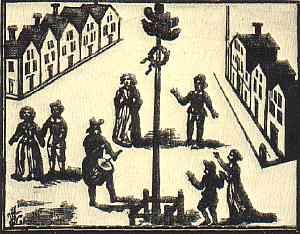It made news a few weeks ago when attorney Willie Gary (many entries) requested that a court award fees of $11,000 per hour for his work on a lawsuit against Motorola; the $24 million total demand may have been outrageous, but at least it was part of a $10 billion lawsuit.
But what about a lawyer who requests $150,000 in fees on a case that was only worth $11,000? A magistrate judge actually granted the award, but fortunately the federal judge overturned that insanity, awarding just $4,900 in fees:
Zloch said the case, which lasted nearly three years and produced thousands of pages of court files, should have been resolved with 19 hours of legal work. Legal experts not involved in the case say a six-figure attorney fee request in a simple overtime case is extraordinary.
In 2004, Trina Carlson, formerly of Weston, Fla., sued her former employer, Dr. Marc Bosem, a Weston ophthalmologist, for $11,000 in unpaid overtime wages. Bosem, who acknowledged he owed Carlson overtime pay, was represented by Plantation, Fla., lawyer Jeffrey Norkin. The case was settled in January 2006 for $11,000.
On the attorney fee request, Zloch this month overturned U.S. Magistrate Judge Lurana Snow’s award of $142,000 in fees for 455 hours of work at $300 an hour, plus paralegal fees and costs.
The actual saga would be humorous if it weren’t so wasteful; it involves allegations of name calling, bad faith, assaults on court reporters (!), claims of destruction of evidence, and ethics charges.
Readers of Overlawyered will not be surprised to find out that this practice is not unusual.
For several years, defense attorneys have complained that plaintiffs attorneys are filing overtime claims under the federal Fair Labor Standards Act for small dollar amounts that require little litigation, then claiming attorney fees in the tens of thousands of dollars. They complain these cases are clogging the federal courts and angering judges.
In 2003, Judge Federico A. Moreno rejected attorney Donald Jaret’s request for $16,000 in fees on a $315 claim that was settled weeks after the claim was filed. In his order, Moreno wrote that the claim “shocks the conscience of the court. … This strategy of ‘shaking down’ defendants with nightmarishly expensive litigation in pursuit of attorney fees must not be rewarded.”
If only more judges felt that way.

 By recognizing its own limitations, a judicial system can assist in welcoming in the Spring:
By recognizing its own limitations, a judicial system can assist in welcoming in the Spring: